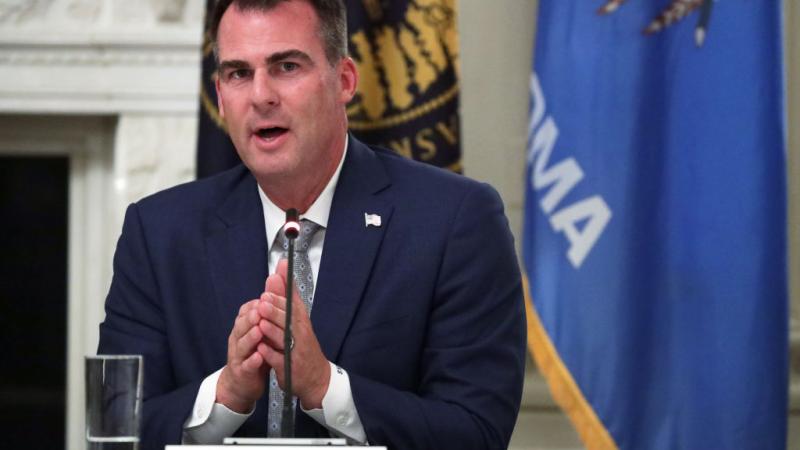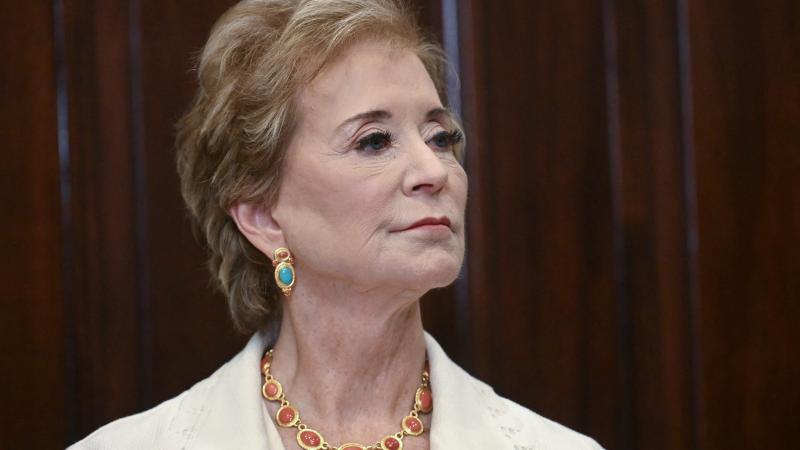Ilya Shapiro lambasts university presidents over testimony: 'failure of leadership'
Despite the resignation of Magill, Shapiro was hesitant to suggest that the other two would follow suit, asserting that Magill already faced pressure from the board over unrelated issues and that the testimony as "the straw that broke the camel's back."
Manhattan Institute Director of Constitutional Studies Ilya Shapiro on Monday excoriated a trio of university presidents who testified before Congress last week on rising antisemitism on their campuses, asserting that showed poor moral leadership by failing to condemn calls for genocide.
Presidents Claudine Gay of Harvard, Sally Kornbluth of MIT, and now-former President Liz Magill of Penn attracted considerable scrutiny for their perceived dithering in the face of harsh questions on their handling of the issue. Magill has since resigned amid intense backlash.
"Well, I think fundamentally, they misunderstood the assignment. They behaved as if this was a deposition with lawyers asking them questions," Shapiro said of the trio on the "John Solomon Reports" podcast. "And they're trying to talk a lot without saying very much and trying to avoid lawsuits and other types of liability. But instead, this is a public hearing that was guaranteed to go viral. And not necessarily the moment to get into legal nuance... And it was just a failure of moral clarity, fundamentally, a failure of leadership, of presenting what the institution actually stands for."
Shapiro went on to assert that "hate speech" was the subject of constitutional protections under the First Amendment, but that private institutions do not have to abide by it, even should they opt to protect free speech in their own policies.
"The problem comes when it's directed at individual people, when it becomes the incitement of violence. And there's a pretty high bar," Shapiro said of the limits of such public comments. "But that may be reached in some circumstances. Or let's say that kind of rally is outside the Hillel, outside the Jewish Center, on campus or outside a dorm where some Jewish students are living. Something like that can be targeted harassment, which goes against the code of conduct."
Host John Solomon then pressed Shapiro on the ideological disconnect between the overwhelmingly left-wing academy and the more divided public, who suggested that political orthodoxy in colleges created "isolated bubbles."
"And that was also part of the reason that the presidents got themselves in trouble last week. They never talked to anyone who has different views, or who doesn't use this weird academic speak, to discuss issues or, for that matter, who might oppose them. There's a lot of yes men surrounding these powerful university presidents," he said. "But the lack of intellectual diversity is a real problem, particularly in areas of social science, particularly when you're discussing controversial issues. And as we've seen, this is, again, another problem that the presidents ran into, is the tremendous hypocrisy when they were trying to clean up their statements and being kind of mealy-mouthed about whether a calling for genocide is okay."
Despite the resignation of Magill, Shapiro was hesitant to suggest that the other two would follow suit, asserting that Magill already faced pressure from the board over unrelated issues and that the testimony as "the straw that broke the camel's back."
"With Claudine Gay, it's a little different. It's also that she's the first black president of Harvard. And so you have all these identitarian interests," he continued. "The plagiarism, if she ends up going down it could be the plagiarism that takes her down ... She was known more for being a DEI administrator, frankly, and putting in new programs to promote diversity academically, and otherwise."
"The Harvard board is having a continual emergency meeting now, [I] think something like 600 faculty members have signed a letter in her support," he went on. "Now, Harvard has 1000s of faculty members. So it's nowhere near even majority. But it's going to be tough because fundamentally, the job of a president isn't to teach in the classroom, it's to be a CEO and to represent the institution."
Ben Whedon is an editor and reporter for Just the News. Follow him on X, formerly Twitter.
















